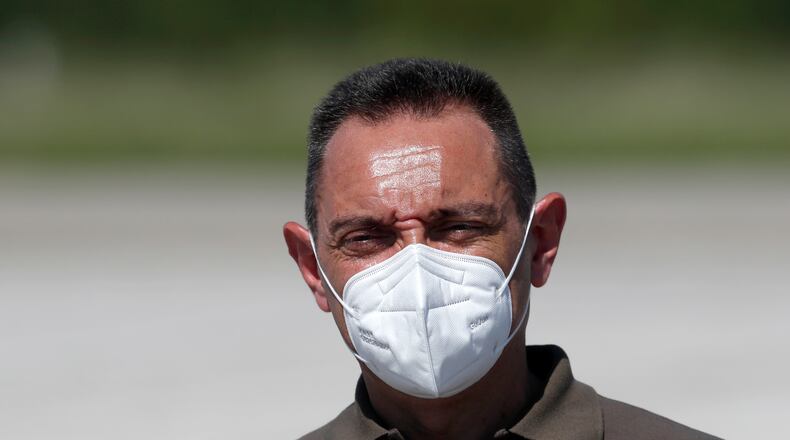Serbia’s troops were to join Russian and Belarusian troops in five days of military maneuvers starting Thursday in Belarus, where massive protests against the long-time autocratic president, Alexander Lukashenko, have roiled the country for a month.
Vulin, a staunch pro-Russian, said that the six-month suspension includes all military exercises, including those with NATO forces.
He said the European Union's “pressure" was part of the EU’s “hysteria” and “increasing (Western) attacks against our country.”
Serbia, which is a member of NATO’s Partnership for Peace outreach program, has formally declared military neutrality. But it has also been holding a series of military exercises with Russia and its allies, triggering unease in the West.
The Balkan country, which in the 1990s was on the receiving end of a NATO air war over its crackdown against Kosovo Albanian separatists, is seeking EU membership. Serbia has also been strengthening its political, economic and military ties with Russia and China.
In a surprise move, Serbia has joined the EU in rejecting the presidential election results in Belarus that gave Lukashenko a sixth term after 26 years in office and also in criticizing a police crackdown on protesters demanding his resignation.
The Serbian government has had close relations with Lukashenko who last visited Serbia in December.
Populist Serbian President Aleksandar Vucic has also faced criticism at home and from abroad for curtailing media freedoms, holding elections that the opposition claims are not free and fair, and cracking down on anti-government demonstrators.
___
Follow all AP stories on the developments in Belarus at https://apnews.com/Belarus
Credit: Darko Vojinovic
Credit: Darko Vojinovic
Credit: Darko Vojinovic
Credit: Darko Vojinovic


